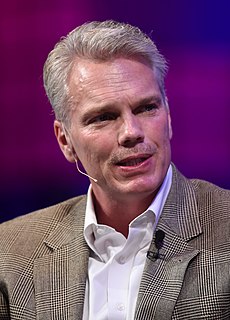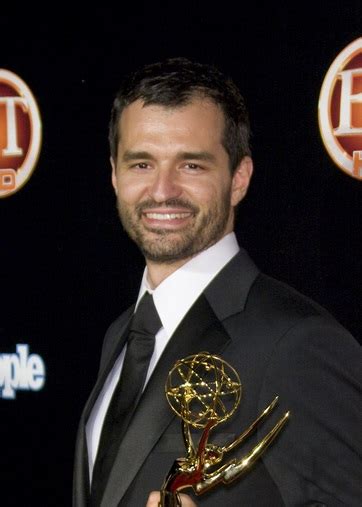A Quote by Jon Batiste
Technology is something you have to embrace because technology is part of our generation. Digital natives, for instance, are people who grew up in a world that always had the Internet and who always had smartphones. Millennials aren't too far behind: my generation of people, who were in the mix of the Internet when it first came out.
Related Quotes
There's always something in new technology that promotes anxiety on the one hand, but also grieving on the other. With the internet, I think we can remember a time when people said "I don't use email," or "I'm not going to get email." I once had to do a piece on people who had never used the internet and refused to start and I found three people. But when I talked to them, they had used it, at some point or another. It's almost impossible to stay off the internet entirely. We feel as though we didn't get to make a decision. There's this new dawn and we all have to embrace it.
One thing is funny because my grandparents are going to come see the show and my mom was concerned that they wouldn't understand, because so much of it is Internet-based. Our generation specifically really relates to it, because we were the first people to discover the Internet and most of us can maybe navigate the Internet better than our parents can. All this information you could ever possibly know is right at our fingertips, not to mention the fact you can meet anyone!
People over the age of thirty were born before the digital revolution really started. We've learned to use digital technology-laptops, cameras, personal digital assistants, the Internet-as adults, and it has been something like learning a foreign language. Most of us are okay, and some are even expert. We do e-mails and PowerPoint, surf the Internet, and feel we're at the cutting edge. But compared to most people under thirty and certainly under twenty, we are fumbling amateurs. People of that age were born after the digital revolution began. They learned to speak digital as a mother tongue.
In Sweden, I went to an English school, where there was a mishmash of people from all over the world. Some were diplomatic kids with a lot of money, some were ghetto kids who came up from the suburbs, and I grew up in between. There's a community of second generation immigrants, and I became part of that because I had an American father.
What I saw quite clearly in the '80s, before the internet, was that the whole world was shifting toward digital formats, and that didn't matter whether it's movies or writing or whatever. It was something that was coming. And with the invention of the World Wide Web in the early '90s, when we were teaching our first courses, or the arrival of the internet by way of the browser, which opened up the internet to everybody - soon it was just revolutionary.
I'm not a politician, and I do not think I am as effective in this way as people who actually prepare for it - is to focus on technical reform, because I speak the language of technology. I spoke with Tim Berners-Lee, the guy who invented the World Wide Web. We agree on the necessity for this generation to create what he calls the Magna Carta for the Internet. We want to say what "digital rights" should be. What values should we be protecting, and how do we assert them.
I've always had a preference for digital, all the way. I grew up through video and camcorders, and I was part of the VHS generation. I made all my stuff in high school on video, and worked for public access. Staying in digital is a very familiar, very natural progression of the things that I've worked in before, and I always try to break as much new ground as I can.




































